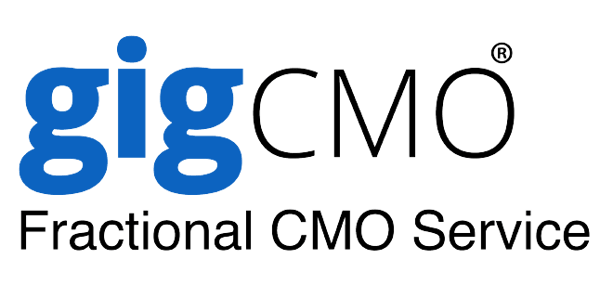
Adapting and growing is essential for success in today's rapidly evolving business landscape. This holds particularly true in marketing, where consumer preferences, technology, and competition are constantly changing.
To thrive in today's competitive environment, businesses must adopt a growth mindset to keep pace with emerging trends and technologies but also cultivate a mindset that welcomes change and continuous improvement. In this article, we will explore the concept of a growth mindset and how it can be harnessed to foster continuous improvement in marketing capabilities.
Understanding a Growth Mindset
Carol Dweck, a Stanford psychology professor who has spent decades studying how people respond to challenges, created the term "growth mindset." Dweck's first goal was to investigate how students in a classroom learn and perform, but her research has influenced how business leaders think about team member training and their work environments.
CEOs with a growth mindset welcome challenges as opportunities for growth. They see setbacks as valuable learning experiences rather than as failures. Whether it's adapting to new digital marketing trends, exploring innovative strategies, or dealing with shifting consumer behaviours, a growth mindset encourages marketers to tackle these challenges head-on.
Embracing a Continuous Improvement Mindset for Your Marketing
The continuous improvement of products, services, or processes through incremental improvements' is closely related to the Japanese phrase 'Kaizen', which means "change for the better." It is not new and is frequently used in businesses of all kinds to reduce marketing spend and improve performance.
It is an ongoing activity to enhance all aspects of a business, including processes, tools, products, and services. Sometimes, the benefits are significant, but most of the time, they are minor. What matters most is that improvements happen frequently. Companies that excel in continuous improvement begin with a belief that success stems from:
- Innovating "how" they do what they do (on a small and large scale).
- Engaging all team members in sharing knowledge and creating ideas for improvement.
- Investigating better ways to serve customers and respond to external changes.
Another principle you can use is the PDCA principle. You must first understand how you function now. To begin, you must set your baseline or beginning point. Then you should:
- Plan: Make a plan for your improvements, including goals.
- Do: Implement the necessary activities for improvement.
- Check: Calculate your success to your starting point.
- Act: Adjust or fine-tune your changes.
The fact that PDCA is relatively versatile is one of its unique characteristics. This cycle characteristic enables it to be used across various businesses, departments, groups, and individual teams. There are no restrictions on its use, and it could be used in the following scenarios:
- Developing a new product or service
- Enhancing existing processes or products
- Kicking off a new process improvement project
- Exploring new opportunities for continuous improvement
- Implementing change
- Identifying process issues and working toward removing them
How Continuous Improvement Can Benefit Your Business?
Improving your marketing is beneficial not just to your business but also to your target audience. It allows you to better meet their demands by constantly refining every part of marketing, from product to promotion.
You improve your ability to satisfy and anticipate the demands of your audience: Using lean principles, you may better understand your audience's demands by testing your messaging and content, putting you in a better position to fulfill and exceed them.
You develop deeper ties with your audience: By focusing on marketing that adds value by constantly growing to be more connected to your audience, you can create deeper connections based on trust and mutual respect.
Reduce marketing spend: Marketing budgets are valuable. Every pound spent should be used to serve your audience better; by wasting marketing spending on strategies that don't work, you're wasting money that could be spent improving your customer experience.
Fostering Improvement in Your Marketing Capabilities
Continuous improvement in marketing capabilities is essential for businesses to stay competitive and adapt to ever-changing market conditions. Here, we outline the key steps and strategies.
1. Assessment and Benchmarking
- Start by assessing your current marketing capabilities. Analyse your team's skills, technology stack, and existing processes.
- Benchmark your performance against industry standards and your competitors. Identify areas where you lag or excel.
2. Set Clear Goals and Objectives
- Establish specific, measurable, achievable, relevant, and time-bound (SMART) goals for your marketing team.
- Align these goals with your overall business objectives to ensure marketing efforts contribute to the company's success.
3. Training and Skill Development
- Invest in continuous learning for your marketing team. Marketing trends and technologies evolve rapidly, so keeping skills up-to-date is crucial.
- Encourage team members to attend workshops, webinars, and industry conferences to learn about the latest marketing strategies and tools.
4. Data-Driven Decision-Making
- Embrace data analytics to inform your marketing decisions. Collect and analyse data on customer behaviour, campaign performance, and market trends.
- Use data insights to refine your marketing strategies and allocate resources effectively.
5. Adoption of Marketing Technology
- Stay current with marketing technology trends. Implement marketing automation tools, customer relationship management (CRM) systems, and analytics platforms.
- Ensure your team is proficient in using these tools to maximise their effectiveness.
6. Continuous Testing and Experimentation
- Embrace a culture of experimentation. A/B testing, user surveys, and customer feedback can help identify what works and what doesn't.
- Use the results of these experiments to refine marketing strategies.
7. Feedback Loops
- Create mechanisms for collecting feedback from customers, clients, and internal stakeholders.
- Use this feedback to make necessary adjustments to your marketing campaigns and strategies.
8. Performance Metrics, KPIs and OKRs
- Establish key performance indicators (KPIs) to track the effectiveness of your marketing efforts. It should be specific, measurable, and relevant to your marketing objectives.
- Additionally, consider implementing Objectives and Key Results (OKRs) to set clear, quantifiable goals that drive growth.
- Regularly review these metrics and use them to identify areas for improvement.
9. Resource Allocation
- Continuously assess your budget allocation. Shift resources towards strategies and channels that demonstrate the best ROI.
- Eliminate or reduce investments in underperforming areas.
10. Leadership and Culture
- Create a culture of continuous improvement within the marketing team and the organisation as a whole.
- Leadership should lead by example, showing a commitment to learning and growth.
Implement the Right Growth Mindset with gigCMO Marketing Capabilities
Adapting and improving is key to long-term success with the continuous evolution of consumer preferences, technology, and market dynamics. We have explored the essential elements of fostering continuous improvement in marketing capabilities. Now, it's time to take action.
At gigCMO, we understand the importance of cultivating a growth mindset within your marketing department. Implementing the right growth mindset of marketing capabilities involves understanding and leveraging their unique approach to business growth. Why gigCMO?
Experience: The team at gigCMO consists of professionals who have risen through the ranks of clients, including companies just like yours, to become marketing leaders, Chief Marketing Officers, CEOs and Founders. They understand the profit and loss (P&L) and how marketing drives revenue.
International Perspective: Our team has lived and worked internationally, growing businesses in culturally diverse countries across North America, EMEA and Asia, often in highly regulated industries and with significant cross-cultural challenges. We get how to build on your industry knowledge, leverage your intellectual property (IP) and existing capabilities and demonstrate your value proposition for your next new market.
Return on Marketing Investment (ROMI): gigCMO knows that marketing is often the second largest expense after people for a company. Our commercially driven focus on marketing investments ensures you get the best ROMI
Brainpower: When you engage with gigCMO, you are tapping into their brainpower. We bring a commercial and customer-focused partner with the experience of providing marketing leadership in a business just like yours.
Benchmarking: In a client meeting, we benchmark the client's capabilities and enablers. We then provide a valuable roadmap to help the businesses increase revenue and deliver ROMI.
As Albert Einstein said, remember, "We cannot solve our problems with the same thinking we used when we created them". So, implementing the right growth mindset with gigCMO's marketing capabilities could be a game-changer for your business.
Are you ready to embrace the power of a growth mindset in your marketing efforts? Contact us today to explore how gigCMO can be your partner in achieving marketing excellence.



